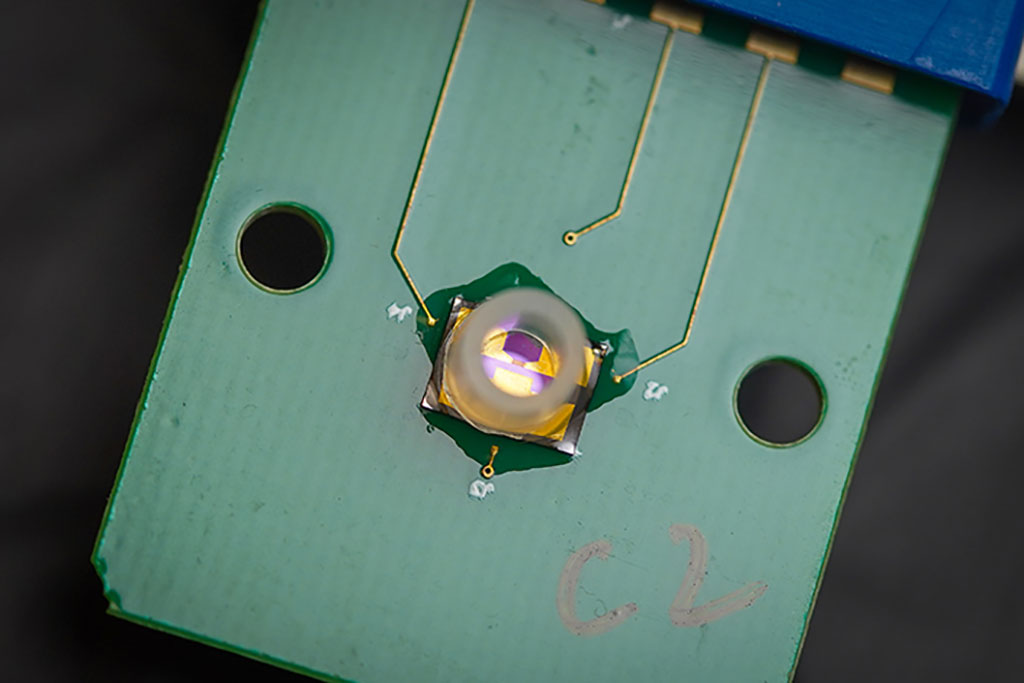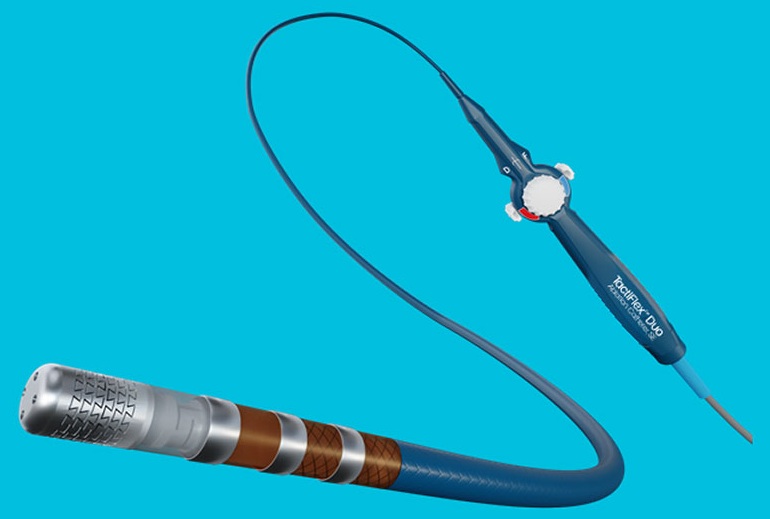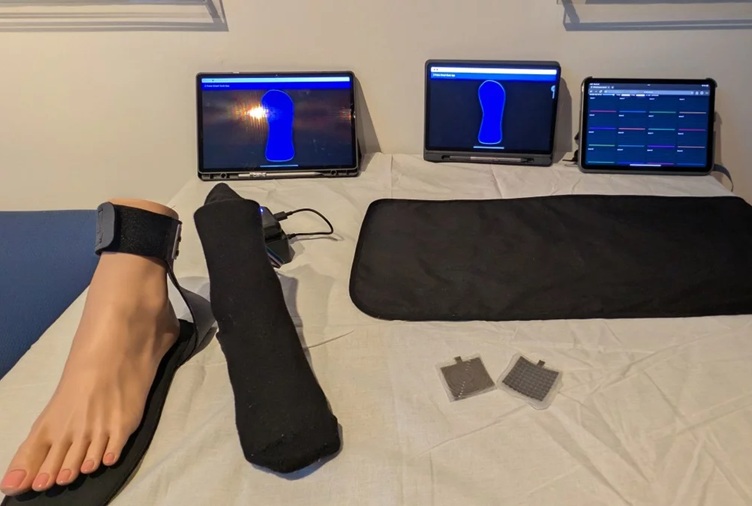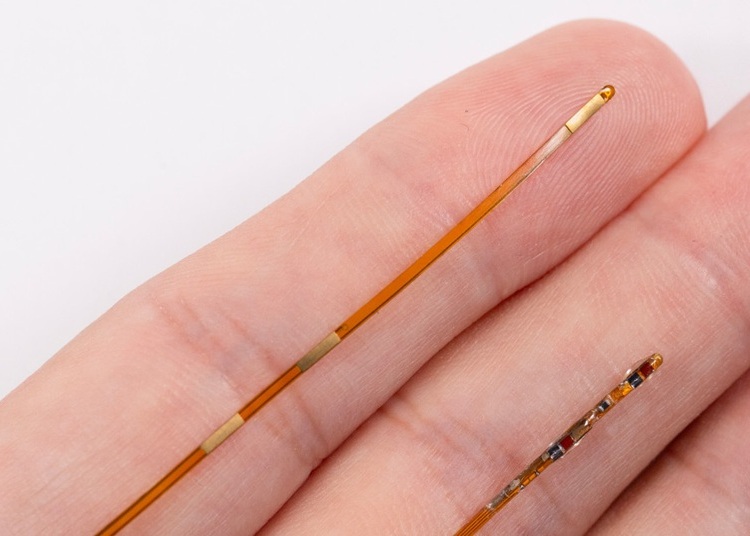Wireless, Handheld, Non-Invasive Device Detects Alzheimer's and Parkinson's Biomarkers
|
By HospiMedica International staff writers Posted on 21 Nov 2023 |

The prevalence of neurodegenerative diseases like Alzheimer’s and Parkinson’s is increasing. Current diagnostic methods for these conditions typically involve invasive procedures such as spinal taps and MRI scans, which can be daunting for patients and pose challenges for those with mobility issues or limited access to medical facilities. In response to these challenges, researchers have developed a groundbreaking handheld device that non-invasively detects biomarkers associated with Alzheimer’s and Parkinson’s Diseases. Additionally, this device has the capability to wirelessly transmit its findings to a computer or smartphone.
Developed by an international team of researchers led by UC San Diego (La Jolla, CA, USA), the device utilizes an electrical detection system rather than a chemical one. This approach is both simpler and more accurate. The core component of the device is a highly sensitive transistor, known as a field effect transistor (FET), featuring a graphene layer that is just one atom thick. This graphene FET (GFET) incorporates three electrodes: the source and drain electrodes connected to a battery’s positive and negative poles to facilitate current flow, and a gate electrode that regulates this current. A unique DNA strand, acting as a probe, is attached to the gate electrode. This probe specifically binds to amyloid beta, tau, or synuclein proteins. The interaction between these amyloids and their corresponding DNA probe alters the current between the source and drain electrodes, and it is this change in current or voltage that signals the presence of specific biomarkers.
The device’s effectiveness was validated using brain-derived amyloid proteins from deceased Alzheimer’s and Parkinson’s patients. The biosensors accurately detected the disease-specific biomarkers, matching the precision of current advanced diagnostic methods. Remarkably, the device requires only minimal sample quantities and can accurately perform even in samples containing a variety of proteins. While detecting tau proteins presented more challenges, the device’s ability to analyze multiple biomarkers allows for a comprehensive and reliable diagnosis. Future plans include testing the device with blood plasma, cerebrospinal fluid, and eventually saliva and urine samples in hospitals and nursing homes. Following successful trials, the researchers aim to seek FDA approval within the next few months, with the ultimate goal of commercializing the device within a year.
“This portable diagnostic system would allow testing at-home and at point of care, like clinics and nursing homes, for neurodegenerative diseases globally,” said Ratnesh Lal, a bioengineering, mechanical engineering and materials science professor at the UC San Diego Jacobs School of Engineering.
Related Links:
UC San Diego
Latest Point of Care News
Channels
Artificial Intelligence
view channelCritical Care
view channel
New Nanomaterial Kills Cancer Cells While Sparring Healthy Tissues
Chemodynamic therapy aims to kill cancer cells by exploiting their abnormal chemical environment, but current approaches often fall short of producing durable tumor control. Malignant tumors are more acidic... Read more
AI Model Accurately Predicts Neurological Recovery After Cardiac Arrest
After cardiac arrest, predicting whether a patient will recover neurologically is one of the most difficult decisions faced by clinicians and families. This challenge is even greater in hospitals with... Read moreSurgical Techniques
view channel
New AI Approach to Improve Surgical Imaging
Surgeons often rely on visual judgment to distinguish between healthy and diseased tissue or to avoid damaging critical structures during procedures. This assessment is subjective and limited by what the... Read more
Dual-Energy Catheter Brings New Flexibility to AFib Ablation
Abbott has secured CE Mark approval for the TactiFlex Duo Ablation Catheter, Sensor-Enabled, for the treatment of atrial fibrillation (AFib). AFib is a common and progressive cardiac arrhythmia affecting... Read morePatient Care
view channel
Revolutionary Automatic IV-Line Flushing Device to Enhance Infusion Care
More than 80% of in-hospital patients receive intravenous (IV) therapy. Every dose of IV medicine delivered in a small volume (<250 mL) infusion bag should be followed by subsequent flushing to ensure... Read more
VR Training Tool Combats Contamination of Portable Medical Equipment
Healthcare-associated infections (HAIs) impact one in every 31 patients, cause nearly 100,000 deaths each year, and cost USD 28.4 billion in direct medical expenses. Notably, up to 75% of these infections... Read more
Portable Biosensor Platform to Reduce Hospital-Acquired Infections
Approximately 4 million patients in the European Union acquire healthcare-associated infections (HAIs) or nosocomial infections each year, with around 37,000 deaths directly resulting from these infections,... Read moreFirst-Of-Its-Kind Portable Germicidal Light Technology Disinfects High-Touch Clinical Surfaces in Seconds
Reducing healthcare-acquired infections (HAIs) remains a pressing issue within global healthcare systems. In the United States alone, 1.7 million patients contract HAIs annually, leading to approximately... Read moreHealth IT
view channel
EMR-Based Tool Predicts Graft Failure After Kidney Transplant
Kidney transplantation offers patients with end-stage kidney disease longer survival and better quality of life than dialysis, yet graft failure remains a major challenge. Although a successful transplant... Read more
Printable Molecule-Selective Nanoparticles Enable Mass Production of Wearable Biosensors
The future of medicine is likely to focus on the personalization of healthcare—understanding exactly what an individual requires and delivering the appropriate combination of nutrients, metabolites, and... Read moreBusiness
view channel
WHX in Dubai (formerly Arab Health) to debut specialised Biotech & Life Sciences Zone as sector growth accelerates globally
World Health Expo (WHX) in Dubai, formerly Arab Health, which takes place from 9-12 February 2026 at the Dubai Exhibition Centre (DEC), has officially announced the launch of a new dedicated Biotech &... Read more
WHX in Dubai (formerly Arab Health) to bring together key UAE government entities during the groundbreaking 2026 edition
World Health Expo (WHX), formerly Arab Health, will bring together the UAE’s health authorities and leading healthcare sector bodies when the exhibition debuts at the Dubai Exhibition Centre (DEC) from... Read more
Interoperability Push Fuels Surge in Healthcare IT Market
Hospitals still struggle to reconcile data scattered across electronic health records, laboratory systems, and billing platforms, undermining care coordination and operational efficiency.... Read more

















